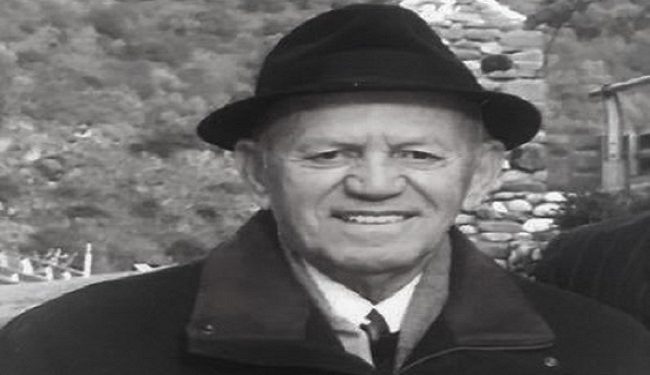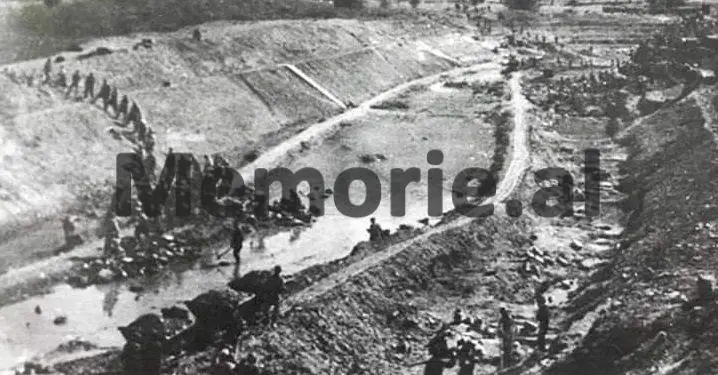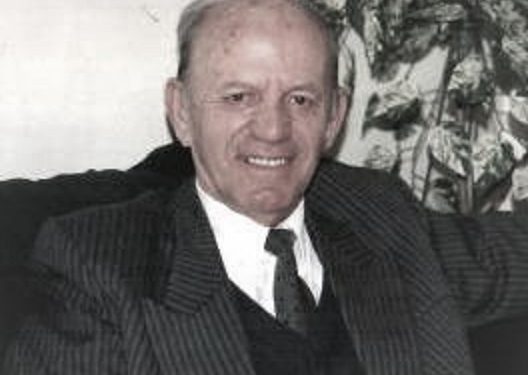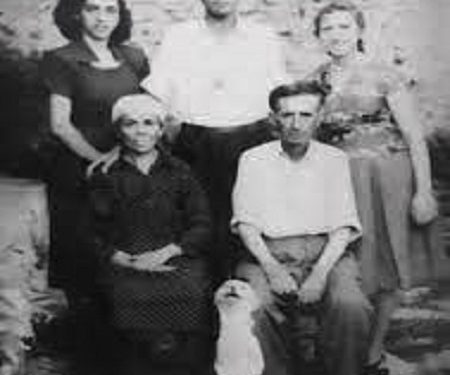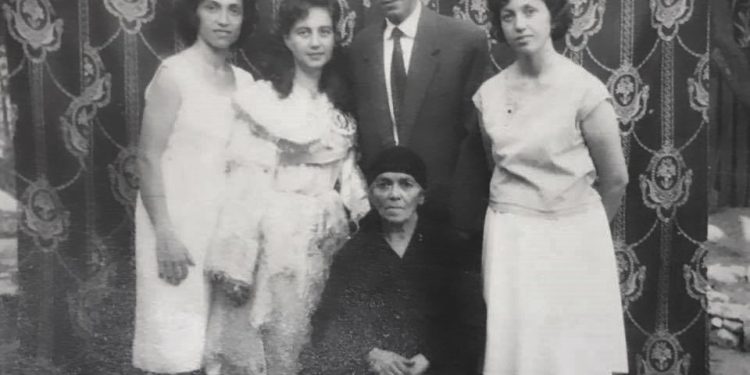By Makensen Bungo
Second part
Memorie.al / Makensen Bungo were born on April 14, 1926, in the city of Elbasan, where his family is from. He was arrested by the communist regime in 1946 and on October 12 of the same year, the Military Court of Elbasan declared him guilty of ‘crimes against the state’ and sentenced him to 5 years of imprisonment, the loss of electoral rights for 5 years’ time, as well as confiscation of property. The accusation of ‘agitation and propaganda’ was all fabricated and was considered a crime against the state, because he had said in various conversations that: “Kosovo is enslaved…”! After his conviction, on February 26, 1947, the Executive Committee of the Elbasan Center Subprefecture ordered the seizure of all his property, movable and immovable. Makensen Bungo was released from prison in 1950, after experiencing the brutal torture of the communist dictatorship’s investigation and seeing death with his own eyes while serving his sentence, in Maliqi Swamp, in the infamous Vloçishti camp, etc. After his release from prison, he completed the “Normal” school in the city of Elbasan and then continued his higher studies at the University of Tirana, Faculty of Languages and Literature, by correspondence. Even when they gave him the right to teach according to graduation, Makensen was sent to deep areas in the villages of Tepelena, Gjirokastra and Fier, but during the entire period of the communist regime of Enver Hoxha and his successor, Ramiz Ali, he was not allowed to to publish. Makensen was able to publish only after the fall of communism and he is the author of several books, such as: 1- ‘Monograph for Abaz Kupin’ (2001). 2 – “The Swamp of Death” (published in 1996 and reprinted 5 times – in 2009, it was also published in English). 3 – ‘The woman in black’ – Volume of stories (2008). 4 – “Journey with sighs” – Roman (2009). 5 – “Kosovo Mother” – poem (2003). 6 – ‘Graves’, poem…etc. 7- “Musine Kokalari”. After the 90s, Bungo immigrated to the USA and he was one of the tireless collaborators for the diaspora press, especially for the newspaper ‘Dielli’ in the USA, where he contributed studies, articles, poems, etc. . Makensen Bungo passed away on September 15, 2018, in a New York hospital, at the age of 92. The writing that we have selected here for publication is taken from his book “The Swamp of Death”, where he realistically described the events that took place in the Vloçishti camp and the Maliqi Swamp, where he served his sentence in the first years after the war along with hundreds of political prisoners from around the country, who worked in inhumane conditions to drain those swamps.
Continues from last issue
FRAGMENT FROM THE NOVEL “SWAMP OF DEATH”
By working, the canal deepened and, as it deepened, the soil became softer and wetter. The water came out and the place where they were working became all mud and slush. The work became too difficult.
When lunch time came, the police blew their whistles. The prisoners left their jobs. Capt. Zeneli went before the brigade of Elbasan, who ordered that no carriage be left without being unloaded. The prisoners climbed the embankment and lined up, for two. Some could not stand. They sat on the ground until the cooks brought the pots of food.
The policemen ordered the prisoners to line up. Screams were heard:
– Direction! A head look at you! A head.
Captain Zeneli saw a prisoner from Durrës, who was not in line. He grabbed him by the collar of his jacket, put some sticks in him, took him out in front of the prisoners and ordered the brigade commander:
– Don’t give him food! Today is punished without lunch.
The convict went and sat down and began to eat the dry bread in silence.
The cooks shared the dish. At first they took the brigade and company commanders. A few beans and a couple of blobs of oil fell into their bowl. The others’ dish was without a bean: just a warm liquid. The five of them walked away from the others and started eating lunch. They left some of the bread for dinner. Sala ate it all.
– What do you want to eat for dinner? Ahmeti told him.
– I have the dish, – laughed Sala.
– Don’t do this again! Your guts will be gnawing all night tonight.
While the prisoners ate their lunch, as usual, the policemen walked along the embankment, keeping their ears open for any word. Geometry also appeared among them. He went near Qamil Daja.
– Good luck, lawyer! – he said.
Work began and continued with the momentum of the morning. As evening approached, the constables blew their whistles again, and shouting wildly and waving their batons in the air, ordered the prisoners to leave their work and fall into line. Each policeman appealed to his company. Not noticing any absence, Captain Zeneli gave the order to depart. The departure was made amid the shouts of the policemen, who shot all the prisoners with sticks, so that they would run as fast as possible, so that they would arrive before it got dark.
The elderly and the disabled, after that heavy work, tried with all their might not to be separated from their friends. But it was impossible for them to follow the great line of prisoners, who walked almost at a run. Then the batons of the police fell on their backs.
An old man did not have the strength to follow his friends. He broke away bit by bit. The policeman shot him several times with a baton. The prisoner tried to speed up, but his strength left him. He looked at the policeman and wanted to say something to him, but he attacked him with all his might. The prisoner fell unconscious in the middle of the swamp. On the order of the police, two prisoners took him as a supporter.
– Take the dog! – Captain Zeneli told them, after he shot him several times. – We are going to the camp, see, if we were at work, I would put a bullet in him, so that he and his friends could see how much it does to them the skin.
The road to the camp was long. The sun was hidden beyond, on the horizon, behind the hills. The evening twilight slowly began to fall. No movement. Among the reeds and mud of the swamp, only the sound of the running prisoners could be heard.
In their laborious run they left behind, among the reeds, in the thick mire of the marsh, a large, thick scar. Sometimes, frightened by the noise of the prisoners, a bird rose from the swamp and flew away. The monotonous song of frogs could be heard in the distance.
As the other prisoners walked towards the camp, two rings of policemen, also armed with assault rifles, followed silently, ready to shoot without warning anyone who stepped out of line.
When they arrived at the door of the camp, they were stopped, counted, and brought inside the camp. The prisoners of Elbasan entered last.
According to the companies, they lined up for two, in the designated place already in the morning.
After the appeal, which was repeated, they were given a bowl of tea. The five of them, sitting on the ground, exhausted and hungry, ate at once the piece of bread they had left for dinner. Sala drank the tea dry.
I told you not to eat all the bread at lunch! Ahmeti scolded him.
– In the morning I will get the bread ration, – said Sala to justify himself. Shaban Plaka, who heard this conversation, took out a piece of bread from his bag and brought it to Sala.
– Take it! he said. – It is village bread. They brought it to me before we came here.
Sala stood hesitantly, but Shabani put it in his lap. Flushed in the face, he picked it up and ate it greedily. It was good, cherepi bread.
After dinner, they lit it one by one. Almost everyone smoked. Even those who had never drunk before had started. In the horrors of dungeons, in the brutality of torture and in the ordeal of prisons, he had become their close friend.
The prisoners got ready to rise. Even the five with the others. Meanwhile, Captain Zeneli was found next to them. Although he knew them well, he asked them:
– Which prison are you from?
– From Elbasan prison, – Hasan answered.
In a hoarse voice, Captain Zeneli shouted:
– Sit down and answer me, you dirty pig?
And put it on his back with a stick. All five stood up. Capt. Zeneli threatened with fury:
– Your time is up, you filthy bourgeois! Until now we have stood before you; now you will stand on our feet, you stinkers!
They didn’t speak. Capt. Zeneli turned his back and left quietly.
– The people of the dictatorship! – said Sopot.
They got up to wash their clothes at the camp’s only tap, near the water tank, but there were too many people gathered there.
They went to the barracks. Other prisoners had gone before. Someone was lying down. Another was sitting on the couch smoking.
They also lit a cigarette. Bewildered by sad thoughts, they began to inhale the tobacco hard, deep, with duff, with hatred, in silence. It was a long, great, heavy silence, which increased every moment in them the hatred for the dictatorship that had just been established in our country.
Ahmeti, who did not smoke, was lying down and thinking about what they would remove in that camp. Sopot, to buy his mind, asked him:
– Why are you thinking? For the suffering we will remove here?
Ahmeti said:
– Will we make it? We are facing a great battle.
– Sopot shook his head and said:
– And difficult, even.
– And heavy, – added Hasani.
– And long, – said Will.
After they finished smoking, they fell to sleep. But, tired and worn out as they were, they didn’t fall asleep right away.
The shed was not properly closed. But the air got heavier and heavier. The heavy smell of sweat, the dirt of the clothes and the smell of the feet began to spoil this.
A prisoner, suffering from asthma, rose from the layers and sat down, breathing with difficulty. His friend, who was sleeping next to him, woke up and advised him to go outside for fresh air.
– I’m afraid the guard will shoot me.
– Even shoots you, – said the friend.
– A prisoner further on began to snort. The friend next to him woke up to the incessant snoring and moved him a little.
– Am I snoring? – said the prisoner who just woke up.
– There is nothing.
– This is how I sleep now. I am left from the torture in the interrogator
A prisoner from the middle of the barracks, rose from the layers, shook a cigarette and began to smoke it in silence.
– What do you have? – asked the friend next to him, who woke up when he got up.
– Cannot sleep
– Why?
– When we left, I learned that my family had notified them to deport them.
– It’s our fate, – said the other. – But try to sleep.
Not much time had passed when, from the back of the shack, an eerie cry was heard. A prisoner, turning over in his sleep, cried aloud:
-No! No! He has done no wrong. Don’t! Don’t! Don’t take it. I come in his place!
His friends woke up to find that he was having a shocking dream and shook him. He woke up confused. He got up on the square, looked around, wiped his eyes and, summing himself up, and said:
– Oh God, save my son!
– Did you have a dream? – asked the friend next to him.
– How! – he asked involuntarily.
The prisoners who were nearby stood up. He looked and was ashamed that he had woken them up.
– Excuse me! – he said.
Then he turned to the friend next to him:
– Give me a cigarette to pull myself together!
Inhaling the tobacco, he said:
– I had a dream that scared me.
– It’s a dream, – said the one who gave him the cigarette – Don’t worry!
He, who saw the dream, sighing, said:
– As if they came from the Directorate of Defense… with a “Jeep”…! They entered the house…! My only son was arrested…! They handcuffed him… punching and kicking him, took him away.
He took a deep breath and continued:
– Oh God, don’t let anything happen to my son! Save me, oh God!
The surrounding prisoners said:
– It’s a dream from fatigue – it’s the first day in this cursed camp.
– We will get used to it. We will get used to it.
The oldest among them said:
– Fine, fine. Sleep now, because tomorrow we will go to work!
– Fall! Fall! – said the old man.
They all fell.
Calm fell again in the barracks. The watchman appeared from time to time at the door of the shack, silent as night. A gloomy stillness had taken over the camp. The wires around the camp shone from the many lights that shone everywhere.
Outside, in the high watchtowers, with machine guns slung around their necks, the guards kept the moon company, which walked slowly, silently, indifferently. In front of the camp, the village of Vloçisht lived peacefully. The residents of this village, who watched this camp from afar, did it occur to them that hundreds of people were suffering the worst tortures under those bright lights? Memorie.al




